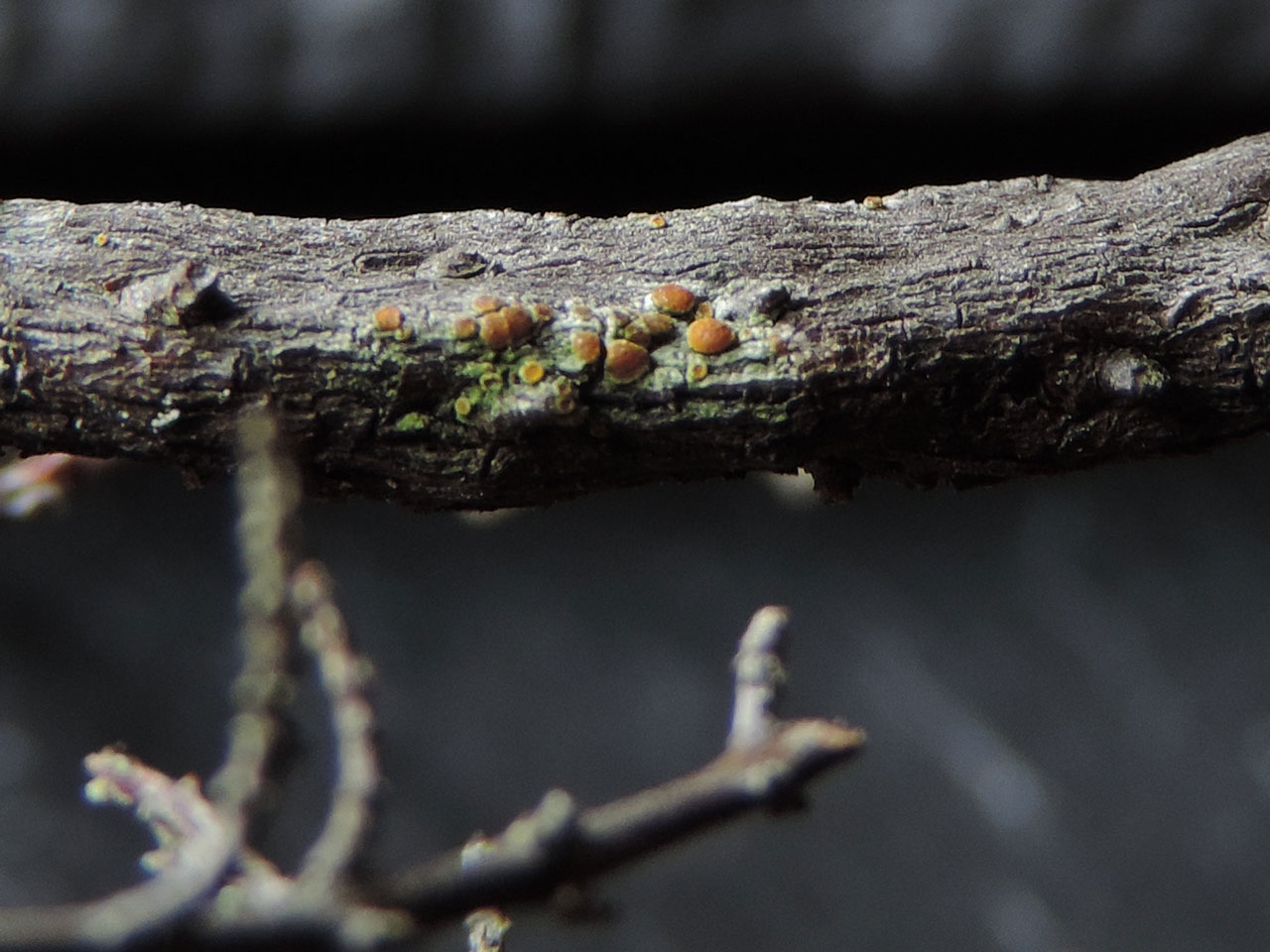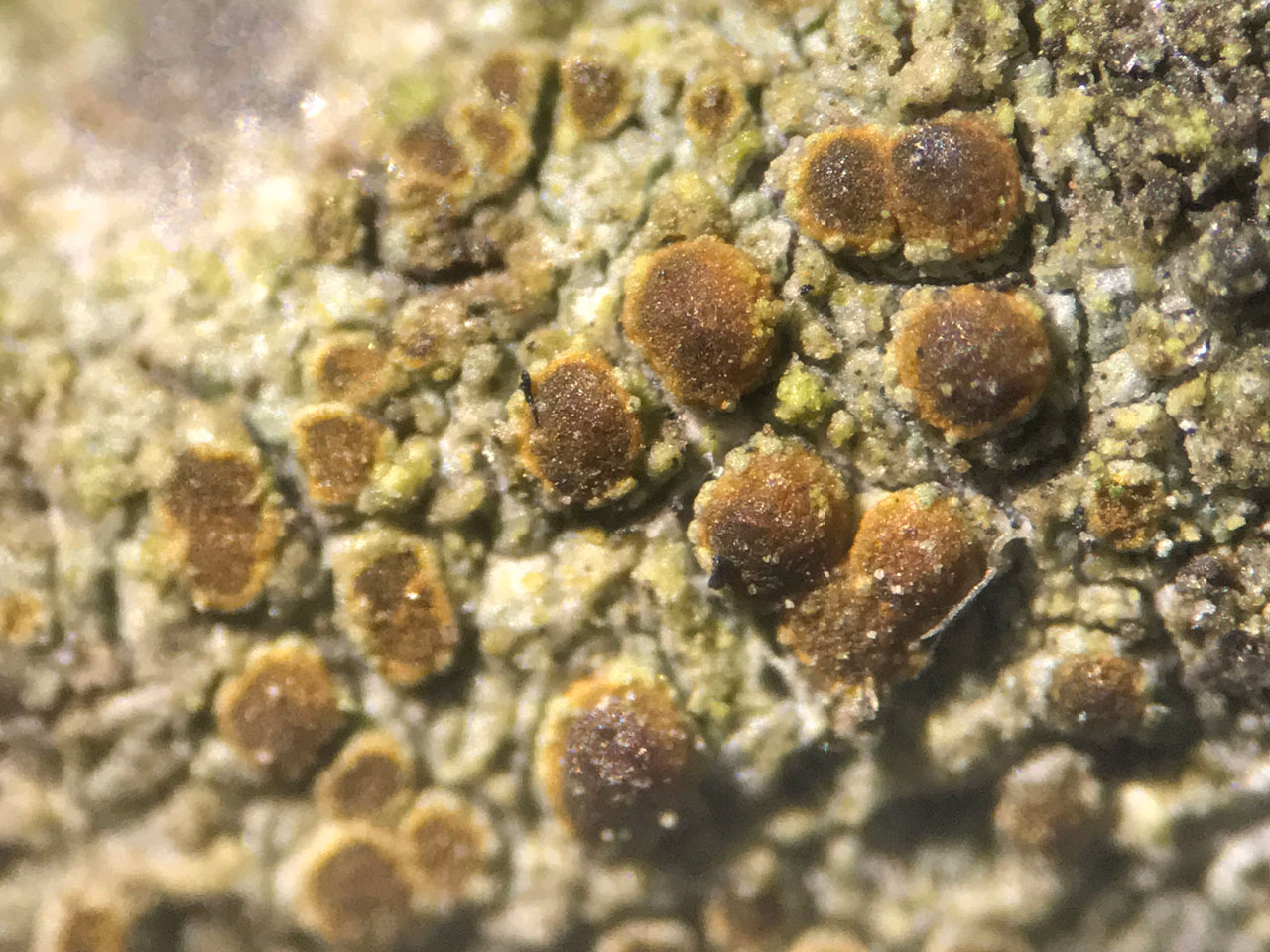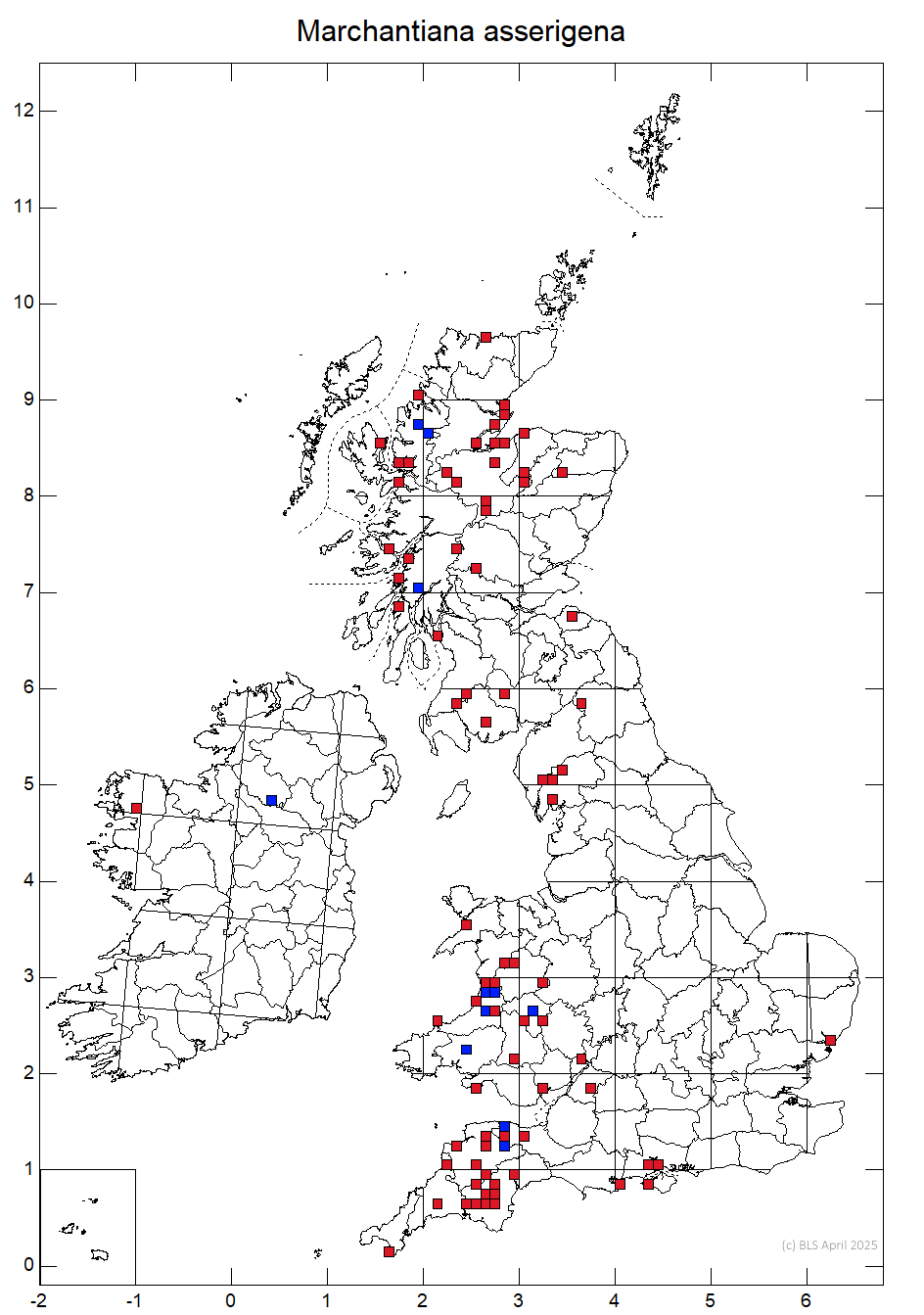A small but distinctive lichen with orange rust-red apothecia on a grey to greenish-fawn thallus found on acid-barked twigs. Until recently this was a species confined to the west coast and in the uplands but is apparently now spreading into lowland eastern Britain.
Thallus crustose, 1–2 mm diam., grey to greenish-fawn, thin and sometimes ± immersed, densely covered with apothecia 0.2–0.4 mm diam., thalline margin pale to mid grey or yellowish grey, irregular, thin and often becoming evanescent; disc ± flat, brown-orange to rust-red, brownish in shade conditions, sometimes becoming black (continental material); paraphyses ca 1.5 µm diam., apically branched, slightly inflated to ca 4 µm diam. Ascospores rather varied in shape but mostly ellipsoidal, 9–12 × 5–6.5 µm, rather thick-
walled, septum 1/3–1/4 the length of the spore. Thallus K–, hymenium slightly K+ purple. Chemistry: contains neochloroemodin.
The minute grey thalli with orange rust-red apothecia on acid-barked twigs, with a faintly K+ purple hymenium distinguish this from other species of Caloplaca s.l.
On Heather and Gorse stems and the twigs of shrubs and trees; local but probably overlooked; known from conifer twigs in Europe.

S.W. England, Wales, Lake District and Scotland; a few records elsewhere in England (possibly spreading east) and in Ireland.
Until recently this was a species of under-shrub stems and tree twigs on the west coast and in the uplands. It is now being found occasionally in lowland eastern Britain, possibly in response a decline in acidifying pollution.
Britain: Notable
Cannon, P., Arup, U., Coppins, B., Aptroot, A., Sanderson, N., Simkin, J. & Yahr, R. (2024). Teloschistales, including Brigantiaea (Brigantiaeaceae), Megalospora (Megalosporaceae) and Amundsenia, Athallia, Blastenia, Calogaya, Caloplaca, Cerothallia, Coppinsiella, Flavoplaca, Gyalolechia, Haloplaca, Huneckia, Kuettlingeria, Leproplaca, Marchantiana, Olegblumea, Polycauliona, Pyrenodesmia, Rufoplaca, Rusavskia, Sanguineodiscus, Scythioria, Solitaria, Squamulea, Teloschistes, Variospora, Xanthocarpia, Xanthomendoza and Xanthoria(Teloschistaceae). Revisions of British and Irish Lichens 43: 1–75.
Text by Neil A Sanderson based on Cannon et al (2024)


